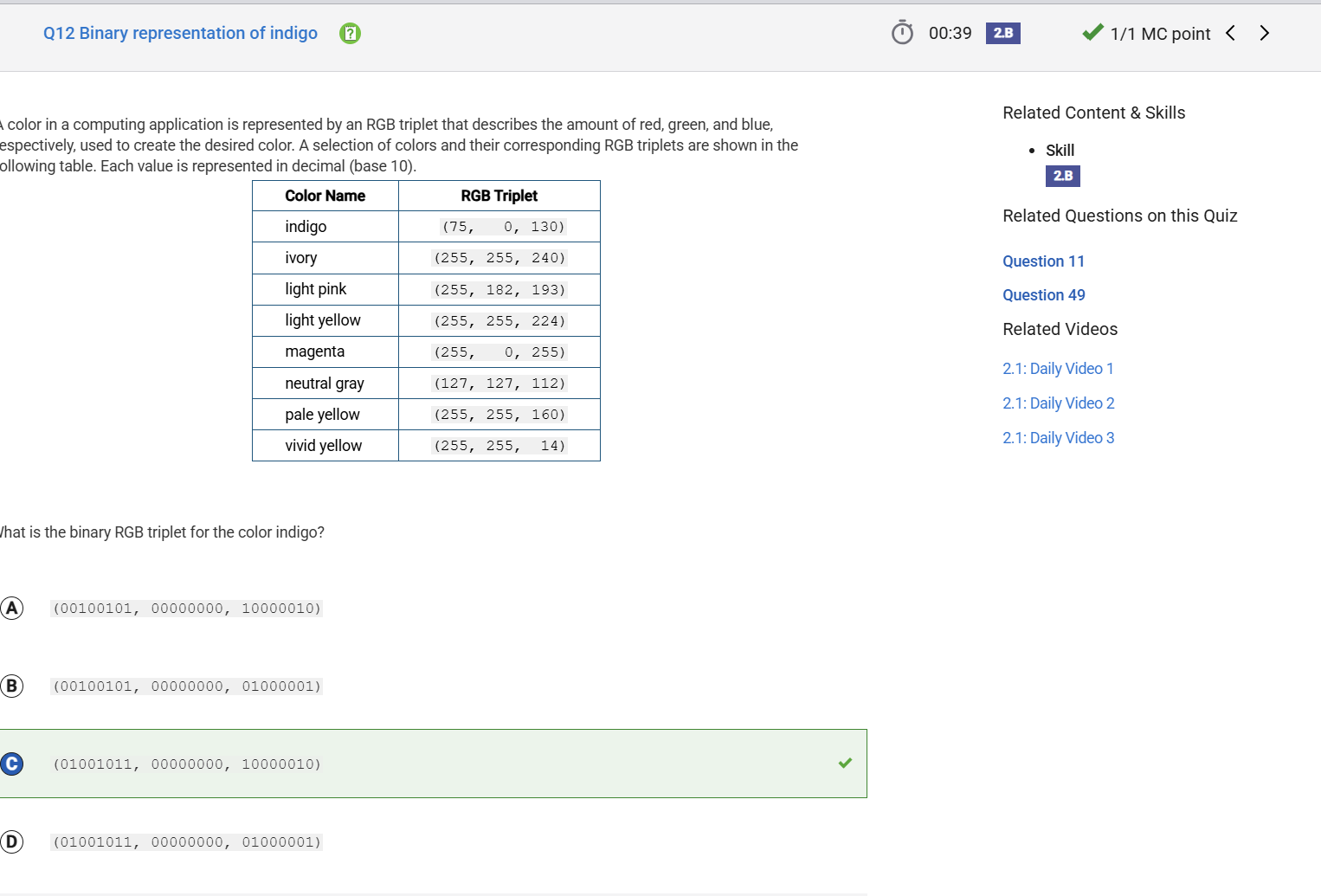- Lesson: Color Codes, Images, and Base64
Lesson: Color Codes, Images, and Base64
Overview
- Objective: Learn how colors are represented, how digital images work, and how to embed images as Base64.
- Who it’s for: Anyone—even if you’ve never coded before.
- How to use: Read each section, follow examples, and work through the exercises.
- Presentation tips:
- Keep your slides simple—one concept per slide.
- Read the bullet points aloud; they guide you.
- Point to code examples on the screen.
- Pause for each exercise and invite participation.
1. Color Codes
What Are Color Codes?
- Represent colors in computers and on the web.
- Essential for web design, digital art, UI layouts.
Common Formats
- Hex (
#RRGGBBor#RRGGBBAA):- Two hexadecimal digits for Red, Green, Blue (and optional Alpha).
- Ranges from
00toFFper channel.
- RGB (
rgb(R, G, B)):- Decimal values 0–255 for each channel.
- RGBA (
rgba(R, G, B, A)):- Adds an alpha (opacity) channel from 0 (transparent) to 1 (opaque).
Key Examples
- Red →
#FF0000→rgb(255,0,0)→rgba(255,0,0,1) - Blue →
#0000FF→rgb(0,0,255)→rgba(0,0,255,0.3) - Orange →
#FF5733→rgb(255,87,51)→rgba(255,87,51,0.5)
▶️ Exercise 1
- Convert these hex codes to RGB & RGBA (A = 1):
#1E90FF#32CD32#FFD700
- Write an RGBA for 50%-transparent teal (
rgb(0,128,128)).
Presenter Notes
- Define “hexadecimal” as base-16 numbering.
- Show how
FFequals 255 in decimal. - Emphasize that RGBA alpha is a fraction.
- Allow learners to shout out answers.
2. Digital Images
What Is a Digital Image?
- A grid of tiny colored squares called pixels.
- Each pixel stores an RGB(A) value.
Common File Formats
- JPEG
- Use for photos.
- Doesn’t support transparency.
- Lossy compression → smaller files, some quality loss.
- PNG
- Use for graphics, logos.
- Supports transparency.
- Lossless compression → larger but crisp.
- GIF
- Use for simple animations.
- Limited to 256 colors.
- Supports transparency.
- SVG
- Vector graphics (XML text).
- Scales without losing quality.
- No “pixels” — resolution independent.
Raw Pixel Example
Suppose a 3×1 image:
[FF5733] [000000] [FFFFFF]
- Pixel 1 → orange
- Pixel 2 → black
- Pixel 3 → white
▶️ Exercise 2
- Design a 2×2 icon:
- Pick 4 colors, list each hex code.
- Calculate storage for that 2×2 image at 24-bit color depth:
- Bits per pixel × number of pixels → total bits.
Presenter Notes
- Draw a simple 2×2 grid on a whiteboard.
- Explain “24-bit” → 8 bits × 3 channels.
- Walk through bit calculation step by step.
3. Base64 Encoding
What Is Base64?
- A way to convert binary data into plain text.
- Uses only ASCII characters (
A–Z,a–z,0–9,+,/,=).
Why Base64?
- Embed images directly in HTML, CSS, JSON.
- Prevents corruption in text-based protocols.
- Avoids extra file requests in emails or small icons.
Quick Conversion Example
- Text
"Hi"→ bytes[0x48, 0x69] - Binary →
01001000 01101001 - Split into 6-bit chunks:
010010 000110 1001 - Map to Base64 chars →
"SGl="
Embedding in HTML
<img src="data:image/png;base64,iVBORw0KGgoAAAANSUhEUgAAABQAAA...">
▶️ Exercise 3
- Base64-encode the string:
Cat
- Create a 1×1 red PNG, convert it to Base64, and embed in
<img>tag.
Presenter Notes
- Show an online Base64 encoder demo.
- Explain padding with
=characters. - Highlight “data URI” format prefix.
4. Combining Color Codes & Base64
You can overlay a semi-transparent color on a Base64 image using CSS:
.icon {
background-image: url("data:image/png;base64,...");
background-color: rgba(255,87,51,0.4);
width: 100px;
height: 100px;
}
Why?
- Quick icon theming.
- No extra image files needed.
Presenter Notes
- Demonstrate live by toggling alpha value.
- Show effect on different background colors.
5. AP CSP Practice Questions

Presenter Notes
- Provide formula sheets for quick reference.
- Have calculators ready (or use on-screen).
- Walk through the first question in class.
Summary & Key Takeaways
- Color Codes: Hex, RGB, RGBA → know formats and conversions.
- Digital Images: Pixel grids → file formats & compression trade-offs.
- Base64: Embed images as text → data URIs in web contexts.
- Combining: Use CSS to theme embedded images.
- Practice: Solidify with AP-style questions.
Further Resources
- MDN Web Docs – Base64
- W3Schools Color Picker
- Base64 Image Encoder
- HTML
<img>Tag Reference - CSS Colors Guide